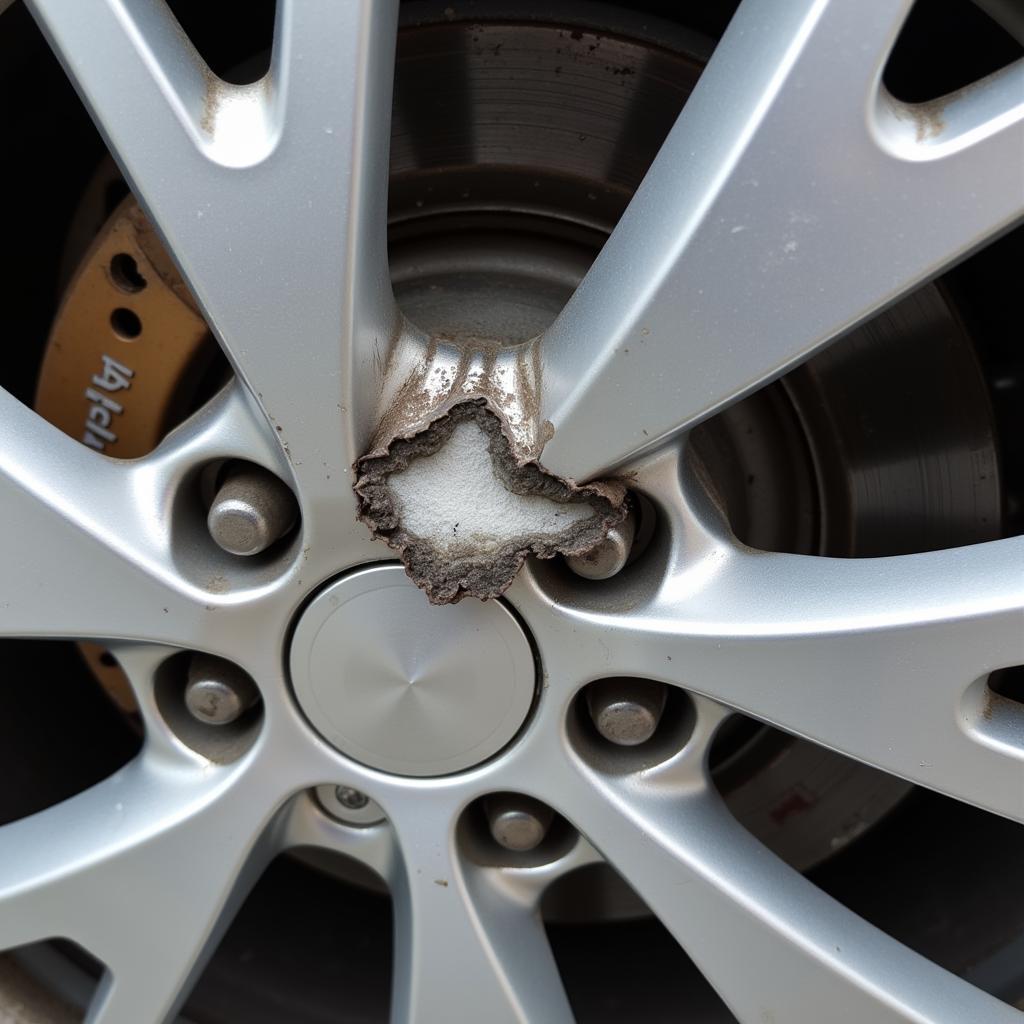Does your car recommend premium gas? Are you tempted to use regular fuel to save a few bucks? While using regular gas in a car that recommends premium might seem like a smart way to cut costs, it could lead to long-term engine problems and ultimately cost you more down the road. This article dives into the reasons why using regular gas in a premium-recommended vehicle can be detrimental to your engine’s health and your wallet.
Understanding Your Car’s Fuel Requirements
Before we delve into the potential problems, let’s understand what “car recommends premium” actually means. This recommendation often appears in your owner’s manual or on the fuel filler door. It signifies that your engine is designed for premium fuel’s higher octane rating, which resists pre-ignition or knocking.
What is Octane Rating and Why Does it Matter?
The octane rating indicates a fuel’s resistance to detonation. Detonation occurs when the air-fuel mixture ignites prematurely in the cylinder, causing a knocking sound. This uncontrolled explosion can damage engine components over time, leading to costly repairs. Premium fuel’s higher octane rating allows for a more controlled burn, especially in high-performance or turbocharged engines.
Long-Term Engine Problems from Using Regular Gas
So, what happens when you ignore the “car recommends premium” advice and consistently use regular gas? Here are some potential long-term consequences:
- Knocking and Engine Damage: The most immediate issue is engine knocking, which can cause damage to pistons, valves, and spark plugs. Continued knocking can lead to significant engine wear and tear, requiring expensive repairs or even engine replacement.
- Reduced Performance: Your car’s computer may adjust engine timing to compensate for the lower octane fuel, resulting in decreased power and acceleration. You might notice a sluggish response or a decrease in fuel efficiency.
- Increased Emissions: Incomplete combustion due to the lower octane can lead to increased emissions, harming the environment and potentially causing your car to fail emissions tests.
- Catalytic Converter Damage: Unburnt fuel can overheat the catalytic converter, a crucial emissions control device, leading to premature failure and a hefty repair bill.
Is Premium Fuel Always Necessary?
While some cars require premium fuel, others simply recommend it. In some cases, using regular gas might not cause immediate problems, especially in newer vehicles with advanced engine management systems. However, continuous use can still lead to the long-term issues mentioned earlier.
How to Determine Your Car’s Actual Fuel Needs
- Check your owner’s manual: The most reliable source of information is your car’s owner’s manual. It clearly states whether premium fuel is required or recommended.
- Look at the fuel filler door: Often, the fuel filler door will have a sticker indicating the recommended fuel type.
- Consult a qualified mechanic: If you’re still unsure, a trusted mechanic can advise you on the best fuel for your car’s specific make and model.
Car Recommends Premium Long Term Engine Problems If Use Regular: Expert Insights
“Using the correct fuel is crucial for maintaining engine health and performance. While the short-term savings of using regular gas might be tempting, the long-term costs of engine damage far outweigh any perceived benefits,” says James Miller, ASE Certified Master Technician.
“I’ve seen countless cases where using the wrong fuel has led to significant engine problems. It’s always best to follow the manufacturer’s recommendations to ensure the longevity of your vehicle,” adds Sarah Chen, Automotive Engineer.
Conclusion
While the “Car Recommends Premium Long Term Engine Problems If Use Regular” concept might seem like a minor detail, it’s a critical factor in your car’s health and performance. Using the correct fuel, as recommended by the manufacturer, ensures optimal engine performance, prevents costly repairs, and extends the life of your vehicle. Ignoring this advice can lead to knocking, reduced performance, and damage to critical components like the catalytic converter. Choosing the right fuel isn’t just about saving a few dollars at the pump; it’s an investment in the long-term health of your car. For further assistance or advice, please contact AutoTipPro at +1 (641) 206-8880 or visit our office at 500 N St Mary’s St, San Antonio, TX 78205, United States.





Leave a Reply